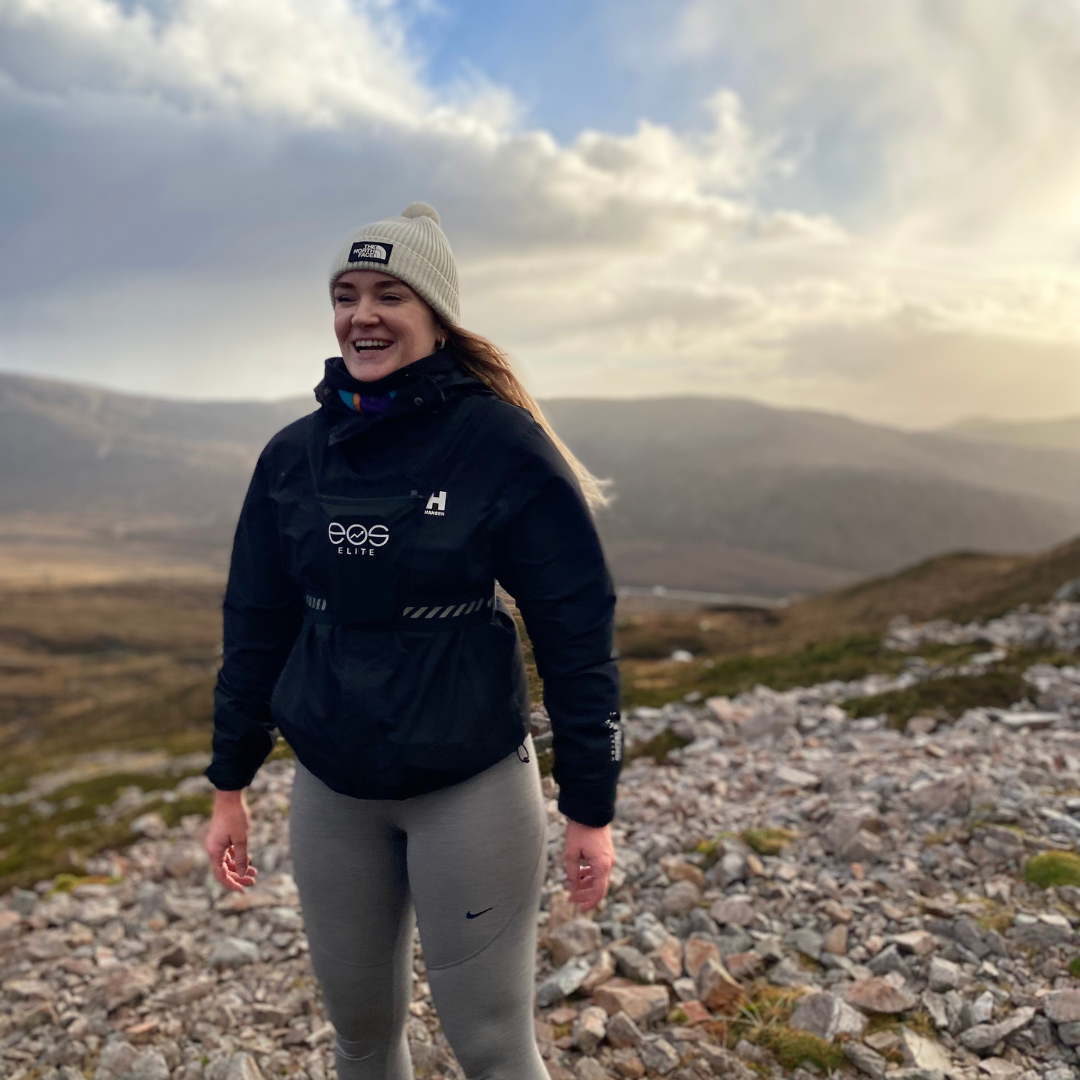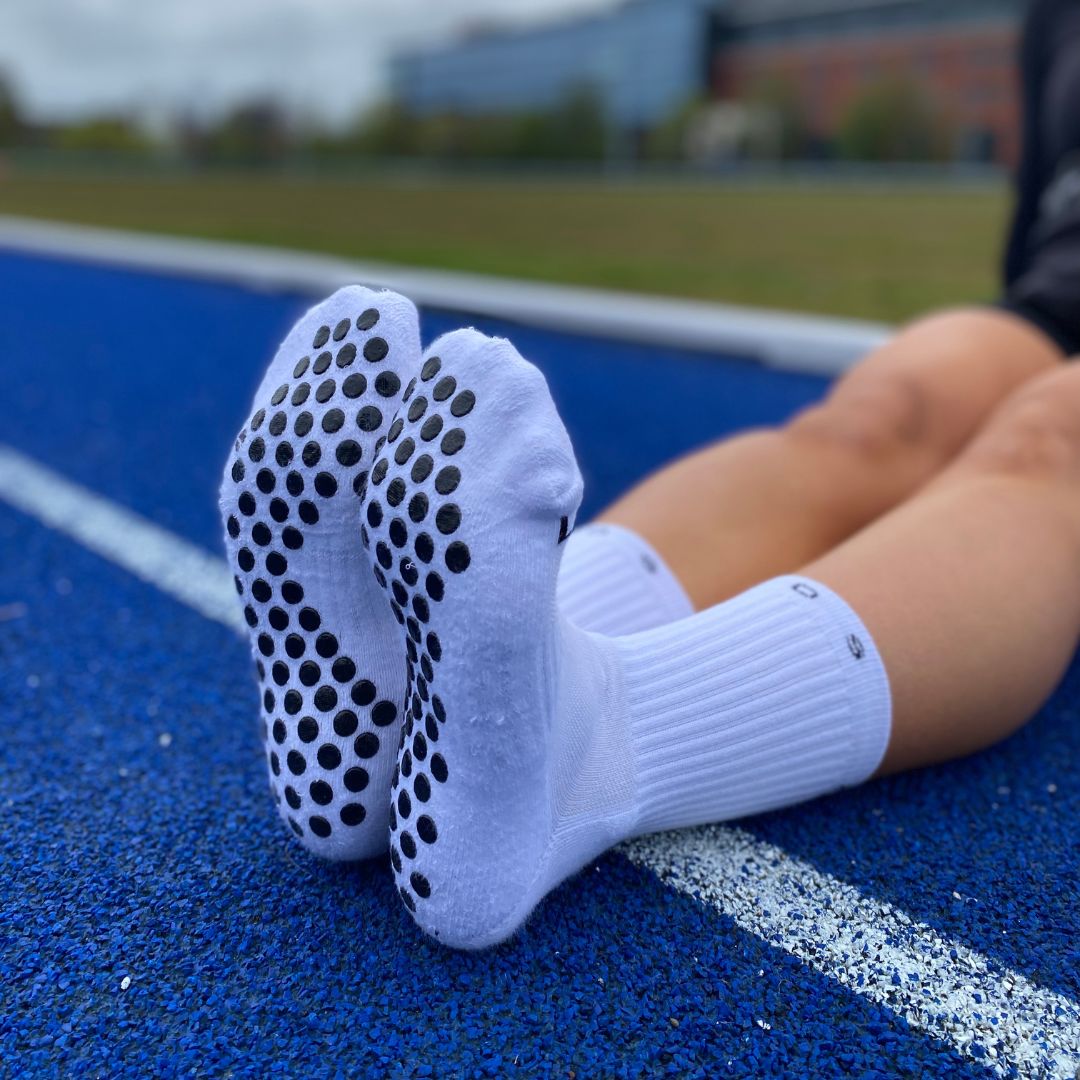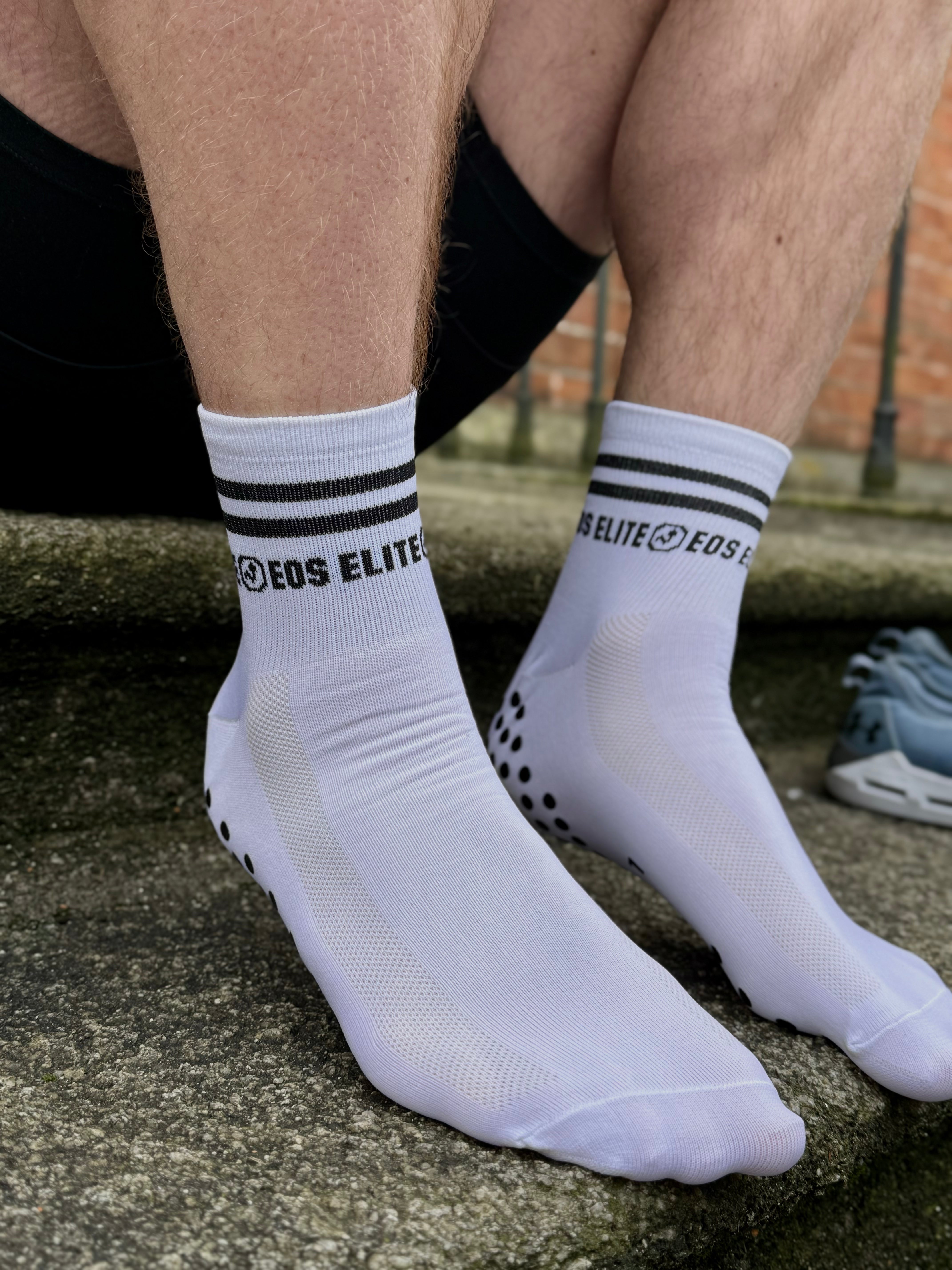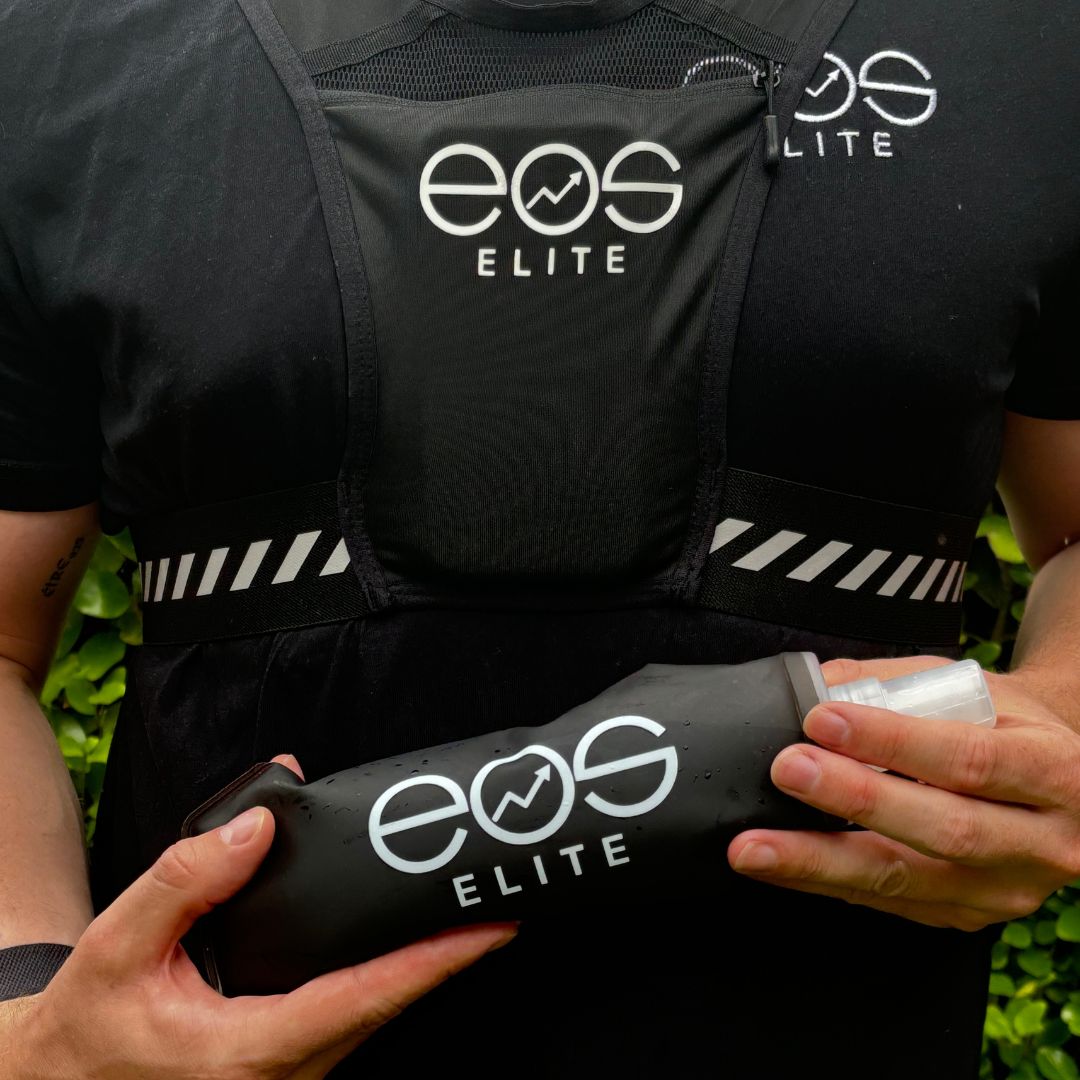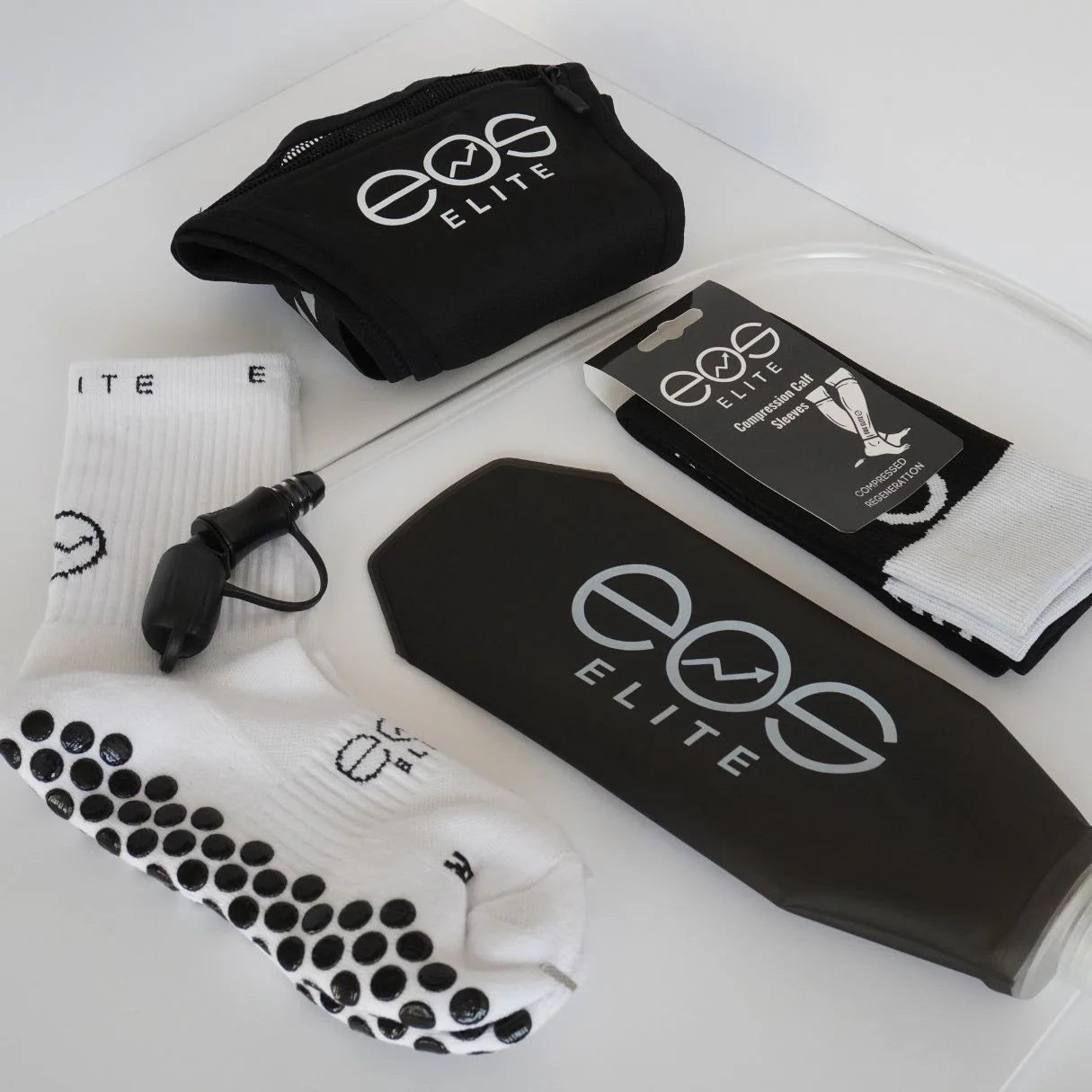The Importance of Hydration During Exercise!
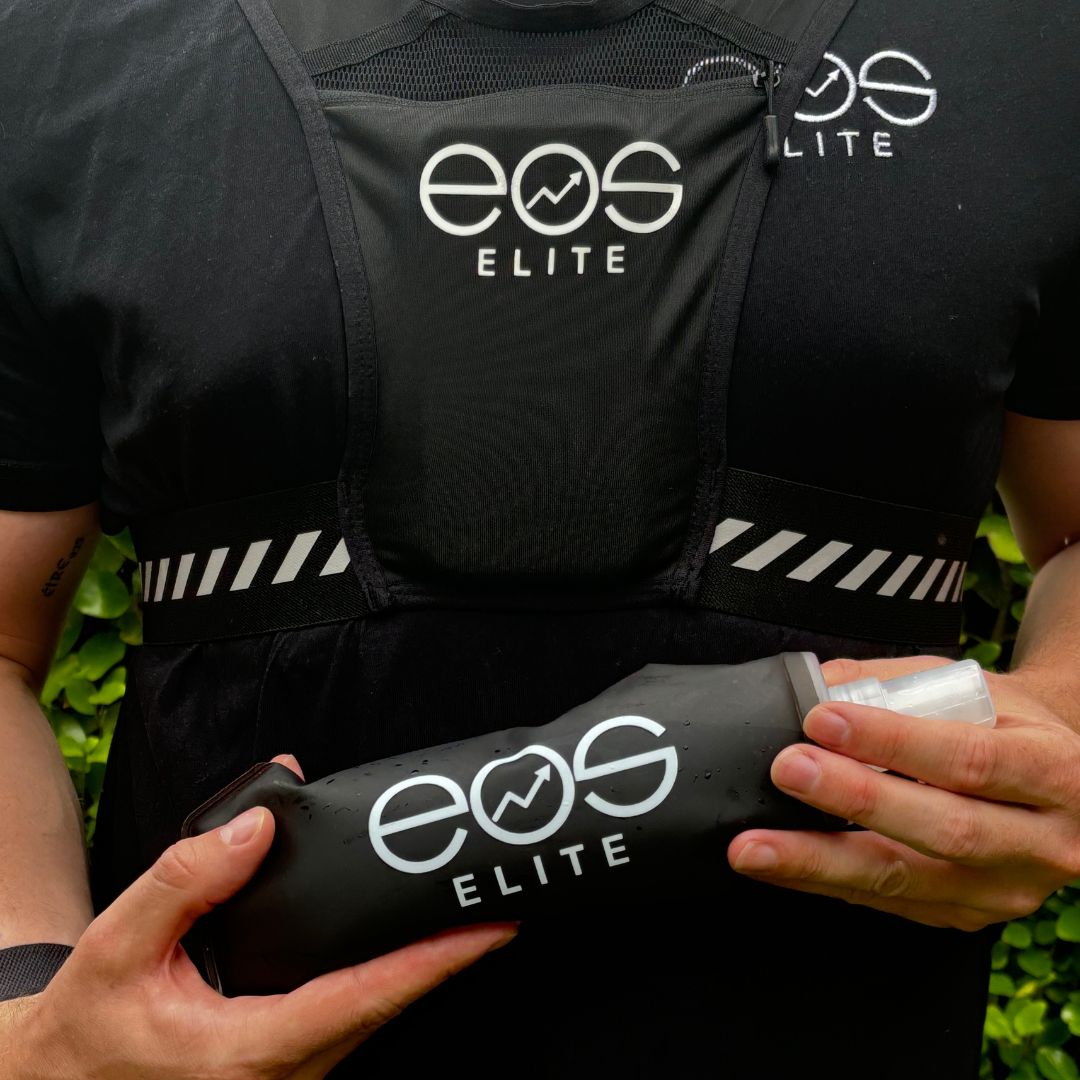
Stay Hydrated, Stay Elite: The Importance of Hydration During Exercise
At Eos Elite, we are committed to supporting your journey towards peak performance with top-quality gear that you can rely on. Proper hydration is essential for optimal performance and overall well-being, especially during exercise. Staying hydrated helps regulate body temperature, maintain energy levels, and prevent cramps and fatigue. Individuals exercising should drink fluid at a rate similar to the rate of sweat loss (Ganio, 2018). That's why we're excited to introduce the Eos Elite 500ml Water Bladder, your perfect companion for staying hydrated on the go.
In any exercise task lasting longer than about 30–40 minutes, carbohydrate depletion, elevation of body temperature and reductions in the circulating fluid volume may be important factors in causing fatigue. All of these can be manipulated by the ingestion of fluids, but the most effective drink composition and the optimum amount of fluid will depend on individual circumstances (Shirreffs, 2009). The importance of adequate fluid intake during exercise has been stressed for sport and cardiovascular performance, for management of thermal stress, and for prevention of exercise-induced muscle cramping (Hoffman, 2016).
One of the best ways to prevent dehydration during training and racing is to make sure you're hydrated before you start, meaning you have a larger reservoir of fluid to draw from during your session. But this doesn’t mean chugging lots of water before heading out the door. ‘It’s not efficient to just drink a load in one go and it will be sloshing around in your stomach,’ says the sports dietician Renee McGregor (Bozon, 2023). ‘You need to regularly hydrate throughout the day or, if you’re going out first thing in the morning, just make sure that you have hydrated well enough.’ ‘The general rule of thumb appears to be a minimum of 50ml every 20 minutes up to 250ml every 20 minutes,’ says McGregor (Bozon, 2023).
During sports training such as football, drink fluids before, during, and after training to maintain hydration levels. Aim to drink 5-9 ounces of water every 15-30 minutes during training sessions. Replenish fluids within 30 minutes of completing your training session. Avoid excessive caffeine, as it can increase dehydration. Consider using a sports water bottle with measurements to track your fluid intake accurately. Incorporate hydrating foods into your diet, such as fruits, vegetables, and soups, which have high water content. Listen to your body and drink when you feel thirsty. Thirst is a reliable indicator of the body’s need for fluids (Baton Rouge Soccer , 2023).
Our new water bladder is designed to be lightweight, durable, and easy to use, ensuring you have quick access to water whenever you need it. Whether you're running, cycling, hiking, or engaging in any physical activity, the Eos Elite 500ml Water Bladder helps you stay refreshed and focused, allowing you to push your limits and achieve your fitness goals.
Author: Josh Cahill, Eos Elite
Sources
Baton Rouge Soccer , 2023. HYDRATION TIPS FOR SOCCER PLAYERS. [Online] Available at: https://brsoccer.org/parent-education/hydration-tips-for-soccer-players
Bozon, J., 2023. Running and hydration: Everything you need to know. [Online] Available at:https://www.runnersworld.com/uk/nutrition/a761780/rws-complete-guide-to-hydration/
Ganio, M. A. L. a. K. S., 2018. Hydration. Sport and physical activity in the heat: Maximizing performance and safety,, pp. 83-100.
Hoffman, M. C. J. G. É. a. L. P., 2016. VIEW: is drinking to thirst adequate to appropriately maintain hydration status during prolonged endurance exercise? Yes.. Wilderness & Environmental Medicine,, 27(2), pp. 192-195.
Shirreffs, S. M., 2009. Hydration in sport and exercise: water, sports drinks and other drinks. Nutrition Bulletin, 34(4), pp. 374-379.


